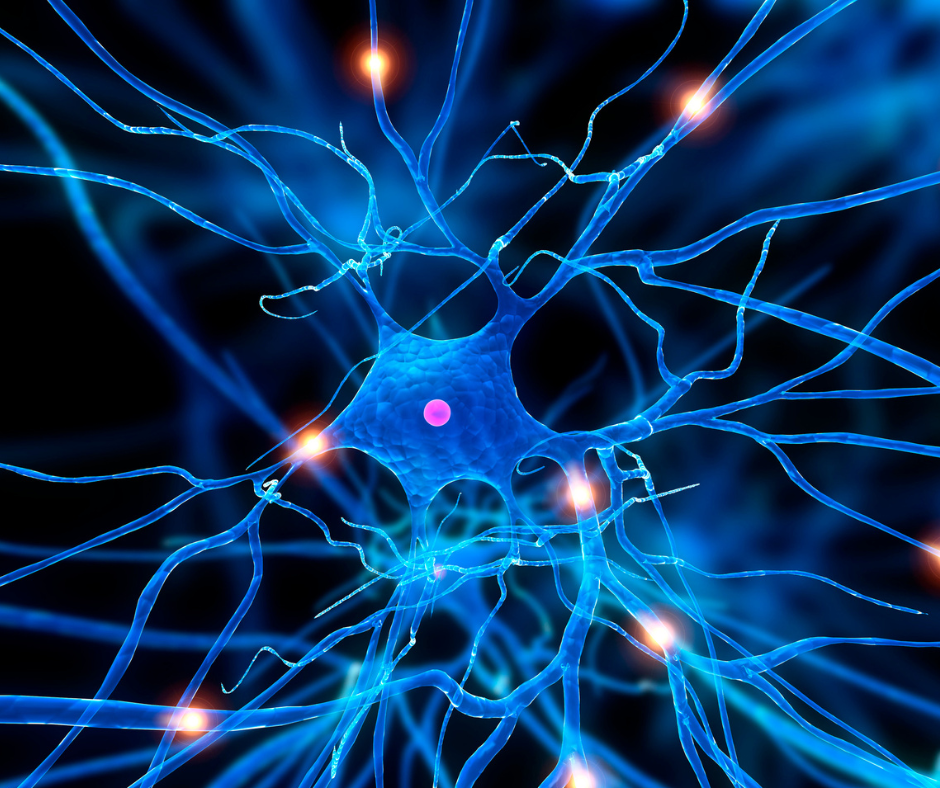What is Peripheral Neuropathy?
Peripheral neuropathy can be an excruciatingly painful and debilitating condition – and the conventional medical drugs on offer are of questionable effectiveness and come with a range of undesirable side-effects.
Complementary medicine, however, offers a diverse range of treatments and therapies that can be used alone or integrated with conventional medical approaches to manage peripheral neuropathy. These natural health strategies focus on reducing foot pain and other symptoms while also addressing the underlying causes of neuropathy, and offering effective strategies for alleviating discomfort and promoting overall well-being. See for example This Study on the successful use of complementary medical and lifestyle approaches to the treatment and amelioration of the debilitating symptoms of peripheral neuropathy.
While neuropathy refers to the general damage or dysfunction of one or more nerves, peripheral neuropathy specifically affects the nerves outside the central nervous system – the brain and spinal cord, thus affecting nerves that enable movement and provide sensation to your arms, legs, hands, and feet. It mainly stems from systemic conditions that affect the entire body and can lead to abnormal sensations.
The connection between causes and the onset of neuropathy is complex. It involves the deterioration of nerve cells or the interruption of nerve signal transmission, which can lead to the characteristic foot pain and other distressing symptoms associated with the condition.
Signs and symptoms
The most common symptom is foot pain, which can range from mild discomfort to severe, debilitating pain. This pain is often accompanied by sensations of tingling or burning, as well as numbness or weakness in the feet and legs. Some individuals may experience extreme sensitivity to touch, making even the weight of a blanket unbearable. In more severe cases, muscle weakness can lead to coordination and balance problems, increasing the risk of falls. Symptoms can progress slowly over time and may be intermittent or constant.
Additionally, for those with diabetic neuropathy, these symptoms are particularly prevalent and can significantly impact quality of life. Recognising these symptoms early is critical for managing the condition and preventing further nerve damage. (See Diabetic Neuropathy and Foot Pain: A Special Focus)
Other symptoms
These may vary in occurrence and intensity and include:
Numbness
Tingling and / or pricking sensation
Stabbing and / or burning sensation
Muscle weakness
Pain
Causes
Various factors can contribute to the development of this condition including:
Alcohol use disorder
Autoimmune diseases
Chemotherapy (Leading to Chemotherapy-Induced Peripheral Neuropathy – see This Study on the promising effects of complementary medicine approaches to treating CIPN)
Chronic kidney disease
Diabetes (of all types), if poorly controlled, can lead to diabetic neuropathy. (See Diabetic Neuropathy and Foot Pain: A Special Focus)
Exposure to toxins
Hereditary disorders
Infections
Nutritional imbalances
Tumours
Complementary Medical Treatment Strategies
Complementary medicine offers a wide variety of treatments and therapies that can be used alone or integrated with conventional medical approaches to improve the symptoms of peripheral neuropathy. These natural health strategies focus on ameliorating foot pain and other symptoms while also addressing the underlying causes of neuropathy, and offering effective strategies for alleviating discomfort and promoting overall well-being.
The following natural treatments and therapies have shown effective results:
Acupuncture
Acupuncture is a traditional Chinese medical (TCM) practice, in which certain points on the body are tonified by inserting needles in order to alleviate pain and promote healing. It has been found to improve nerve conduction and reduce painful symptoms in neuropathy patients.
Nutritional Therapy
Nutritional imbalances can often exacerbate neuropathic symptoms. Therefore, a nutrient-rich diet, with a focus on B vitamins, vitamin E, and magnesium, plays a crucial role in nerve repair and management of neuropathic pain. Increasing foods containing omega-3 fatty acids is recommended – it is best to utilise plant sources of these to avoid issues with heavy metal and other chemical toxicity – search for ‘vegan Omega 3s’.
Physical Therapies
Therapies like massage and chiropractic care not only provide relief from muscular tension but can also stimulate blood circulation. Improved blood flow can nourish nerve cells and aid in reducing neuropathic discomfort.
Mind-Body Practices
Mind-body practices such as yoga, qigong, tai chi, and meditation can help in managing stress, which is known to worsen neuropathic symptoms. By promoting relaxation and improving the body’s capacity to deal with stress, these practices can enhance overall health, energy level, and well-being.
Herbal Remedies
The herbs mentioned here have historically been considered beneficial in the treatment of various conditions. Therefore, these are often recommended by healthcare practitioners. However, herbal medication should always be taken under the guidance of a healthcare practitioner to avoid any potential side effects or interactions with other medications.
Several herbs, such as evening primrose oil, skullcap, and St. John’s wort, contain anti-inflammatory and analgesic properties that can alleviate neuropathic pain.
Aromatherapy
Essential oils such as lavender, chamomile, and peppermint have soothing properties. When used in conjunction with massage therapy, these can offer relief from pain and induce relaxation.
Embracing the potential of these complementary therapies and integrating them with conventional medical treatment can significantly enhance the management and relief of peripheral neuropathy. It’s important to remember that the effectiveness of these complementary therapies can vary from person to person. Hence, treatment plans should be customized based on individual symptoms, overall health, and lifestyle under the guidance of a healthcare professional. Understanding and harnessing the power of complementary medicine is thus a key step towards a holistic and effective neuropathy management strategy.
Homeopathy
There are several homeopathic remedies that are able to assist in alleviating acute neuropathic pain – including hypericum, which is a ‘specific’ remedy that is used for nerve pain. Hypericum has many other uses too – and there are other remedies that can also be extremely effective – so it is always best to consult a properly trained, CMA Registered Homeopath who will be able to take all symptoms into consideration and prescribe the correct remedy, accordingly.
Lifestyle Medicine
Lifestyle medicine plays a crucial role in both preventing and managing peripheral neuropathy, particularly in individuals with conditions like diabetes that increase the risk of developing this nerve-related complication. This medical approach emphasizes the modification of daily habits and the environment to better manage health conditions through non-pharmacological means.
Advice with particular reference to diabetics (of all Types):
Maintaining good blood glucose control is of paramount importance for individuals with diabetes, not only to manage the disease effectively but also to prevent or improve complications such as peripheral neuropathy. The Complementary Medical Association emphasizes that peripheral neuropathy, a condition characterised by nerve damage that can result in sensations of pain, numbness, and weakness primarily in the hands and feet, can significantly impair quality of life. By keeping blood glucose levels within a recommended range, diabetics can reduce the high sugar levels in the blood that contribute to nerve damage. Integrative approaches, combining conventional medicine – where indicated – with a whole food plant-based diet is tremendously helpful and complementary therapies such as nutritional supplementation, acupuncture, and tailored exercise programs, can further enhance glucose control and nerve function, providing a holistic strategy to manage or mitigate the symptoms of neuropathy. Proactive glucose management is therefore crucial, not only for the general health of diabetics but also as a targeted approach to counteract the debilitating effects of peripheral neuropathy.
For further reading on complementary and lifestyle medicine and its impact on peripheral neuropathy, we recommend the following:
- “The Lifestyle Medicine Handbook: An Introduction to the Power of Healthy Habits” by Beth Frates, MD: This book provides a comprehensive overview of lifestyle medicine and its application to various health conditions.
- “Nerve Damage from Diabetes: Can It Be Reversed?” published by the Mayo Clinic: Offers insights into how lifestyle changes can specifically address nerve damage due to diabetes.
- “Peripheral Neuropathy: What It Is and What You Can Do to Feel Better” by Janice F. Wiesman, MD: This book specifically focuses on peripheral neuropathy, detailing practical strategies for managing the condition through lifestyle adjustments.
These resources offer a blend of medical insights and practical advice that can empower individuals to adopt lifestyle changes that significantly influence the course of peripheral neuropathy.
References
Lehmann HC, Wunderlich G, Fink GR, et al. Diagnosis of peripheral neuropathy. Neurol. Res. Pract. 2, 20 (2020).
Moawad H, 4 Neuropathy Types and How to Treat Them: Effects of Peripheral, Proximal, Focal, and Autonomic Neuropathy. Very Well Health, April 2024.


